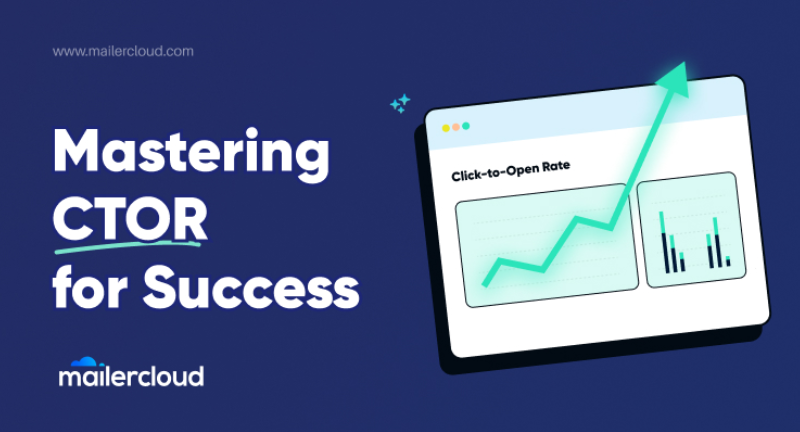HubSpot and SEMrush are powerful tools for SEO and marketing. Each offers unique features catering to different business needs.
HubSpot excels in inbound marketing, providing a comprehensive suite for content creation, email marketing, and CRM integration. It helps businesses attract, engage, and delight customers. SEMrush, on the other hand, is a robust SEO tool known for its advanced keyword research, competitive analysis, and backlink tracking.
It aids in optimizing websites for search engines and improving online visibility. Both platforms have their strengths, making them suitable for various marketing strategies. Choosing between HubSpot and SEMrush depends on specific business goals and requirements. Understanding their distinct capabilities will help in making an informed decision for your marketing efforts.
Overview Of Hubspot
HubSpot is a powerful marketing tool. It helps businesses grow. The tool offers a CRM system that tracks customer interactions. HubSpot also provides email marketing tools. These tools help create and send email campaigns. You can also use social media management features. These features allow you to schedule and track posts.
Analytics is another core feature. It helps you understand your marketing performance. HubSpot’s blogging tools are also very useful. You can create and optimize blog posts easily. The tool also offers landing page creation. This helps in capturing leads efficiently.
HubSpot integrates with many other tools. This makes it flexible and versatile. The user interface is very friendly. Even beginners can use it with ease.

Credit: www.flyingvgroup.com
Overview Of Semrush
Semrush offers comprehensive SEO and marketing tools for keyword research, competitor analysis, and site audits. This platform enables businesses to optimize their online presence efficiently.
Core Features
Semrush offers powerful tools for keyword research. It helps find the best keywords for your site. There is a tool for analyzing competitors. This helps in understanding their strategies. Another feature is the site audit. It checks the health of your website. Semrush also provides a backlink analysis tool. This helps track the quality and quantity of backlinks. The content marketing tool helps in planning and creating content. There is also a social media toolkit. This helps in managing and tracking social media performance.
Target Audience
Semrush is ideal for digital marketers. It’s great for SEO specialists. Small and medium businesses will benefit a lot. It is also useful for content creators. Anyone wanting to improve their online presence should use Semrush.
Seo Capabilities
Explore the SEO capabilities of HubSpot and Semrush. Both platforms offer robust tools for optimizing your online presence. Discover which one aligns better with your marketing needs.
Keyword Research
HubSpot provides basic keyword research tools. It helps to find relevant keywords. The tool suggests keywords based on your content. Semrush offers more advanced features. It includes keyword difficulty analysis. Semrush also provides keyword trends. You can see competitor keyword usage too. Both tools help improve SEO strategies. But Semrush offers deeper insights.
On-page Seo
HubSpot includes on-page SEO recommendations. It checks your content for SEO best practices. HubSpot provides tips to improve your on-page SEO. Semrush offers a comprehensive on-page SEO checker. It analyzes your pages in detail. Semrush gives actionable advice to fix issues. The tool also checks for technical SEO errors. Both tools help enhance on-page SEO. Yet, Semrush provides a more thorough analysis.
Content Marketing
HubSpot offers a drag-and-drop editor. This makes content creation easy and fun. You can create blogs, emails, and landing pages. Templates are also available. These help you start quickly. HubSpot also suggests ideas for new content.
Semrush focuses on keyword research. You can find trending topics. This helps you create content that people want. Semrush also has writing tools. These tools help you make your content better. You can check your text for SEO scores and readability.
HubSpot has SEO tools built-in. You can optimize your content directly. This saves time and boosts your ranking. HubSpot also offers analytics. These show how your content is performing.
Semrush excels in competitive analysis. You can see what competitors are doing. This helps you improve your own content. Semrush also provides detailed SEO reports. These help you find and fix issues in your content.
Analytics & Reporting
Hubspot tracks website performance with ease. It offers real-time analytics. Users can see how their site is doing instantly. Semrush also offers performance tracking. It shows how keywords rank over time. This helps users understand their SEO efforts.
Creating custom reports is simple with Hubspot. Users can choose what data to include. This makes the reports tailored to their needs. Semrush also allows for custom reports. Users can drag and drop elements. This makes reporting flexible and user-friendly.
Credit: www.digitalmediastream.co.uk
User Experience
HubSpot excels in providing an intuitive user experience with its seamless integration and easy-to-navigate interface. SEMrush offers robust tools, catering to in-depth SEO analysis and marketing strategies. Both platforms enhance user experience through their powerful functionalities and user-friendly designs.
Ease Of Use
Hubspot has a user-friendly interface. New users can navigate it easily. Semrush can feel overwhelming at first. Its dashboard has many features. This can be confusing for beginners. Hubspot offers simple, guided steps. This helps users get started quickly. In contrast, Semrush may require some training.
Customer Support
Hubspot provides excellent customer support. Their team is available 24/7. They offer live chat, email, and phone support. This ensures quick help for users. Semrush also offers support, but it’s limited. They do not provide 24/7 assistance. Users may have to wait for responses. Hubspot’s support team is known for being friendly and helpful. Semrush’s support can be slower but still reliable.
Pricing & Plans
Hubspot offers a range of subscription models. They have free, starter, professional, and enterprise plans. Each plan includes different features. The free plan offers basic tools. The enterprise plan includes advanced features and support.
Semrush also provides several subscription models. Plans include pro, guru, and business. The pro plan is for small businesses. The guru plan suits growing businesses. The business plan is for large companies. Each plan has a different set of features.
Hubspot’s plans are known for their value for money. The free plan offers great tools for beginners. The starter plan is affordable and offers more features. The professional and enterprise plans are pricier but offer extensive tools and support.
Semrush also offers good value for money. The pro plan is cost-effective for small businesses. The guru plan provides more tools for growing businesses. The business plan is expensive but offers comprehensive features for large companies.

Credit: blog.hubspot.com
Frequently Asked Questions
What Is The Main Difference Between Hubspot And Semrush?
Hubspot focuses on inbound marketing and CRM tools, while Semrush specializes in SEO and competitive research. Both offer valuable features for marketers.
Which Tool Is Better For Seo, Hubspot Or Semrush?
Semrush is better for SEO due to its extensive keyword research, backlink analysis, and competitor tracking features.
Can Hubspot And Semrush Be Integrated?
Yes, Hubspot and Semrush can be integrated. This integration allows you to combine CRM and SEO insights for a holistic marketing approach.
Which Tool Offers Better Analytics, Hubspot Or Semrush?
Semrush offers better analytics for SEO and competitive research. Hubspot excels in marketing automation and customer relationship management analytics.
Conclusion
Choosing between HubSpot and Semrush depends on your specific needs. Both offer robust SEO and marketing tools. HubSpot excels in inbound marketing, while Semrush provides comprehensive SEO insights. Evaluate your goals and budget to decide which platform suits you best.
Both tools can significantly enhance your digital marketing efforts.


